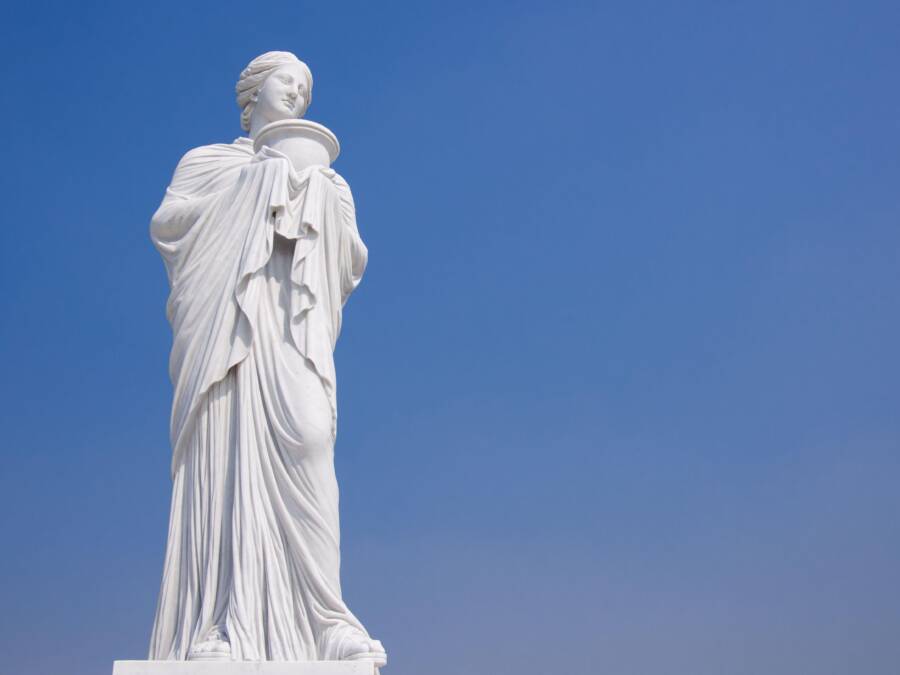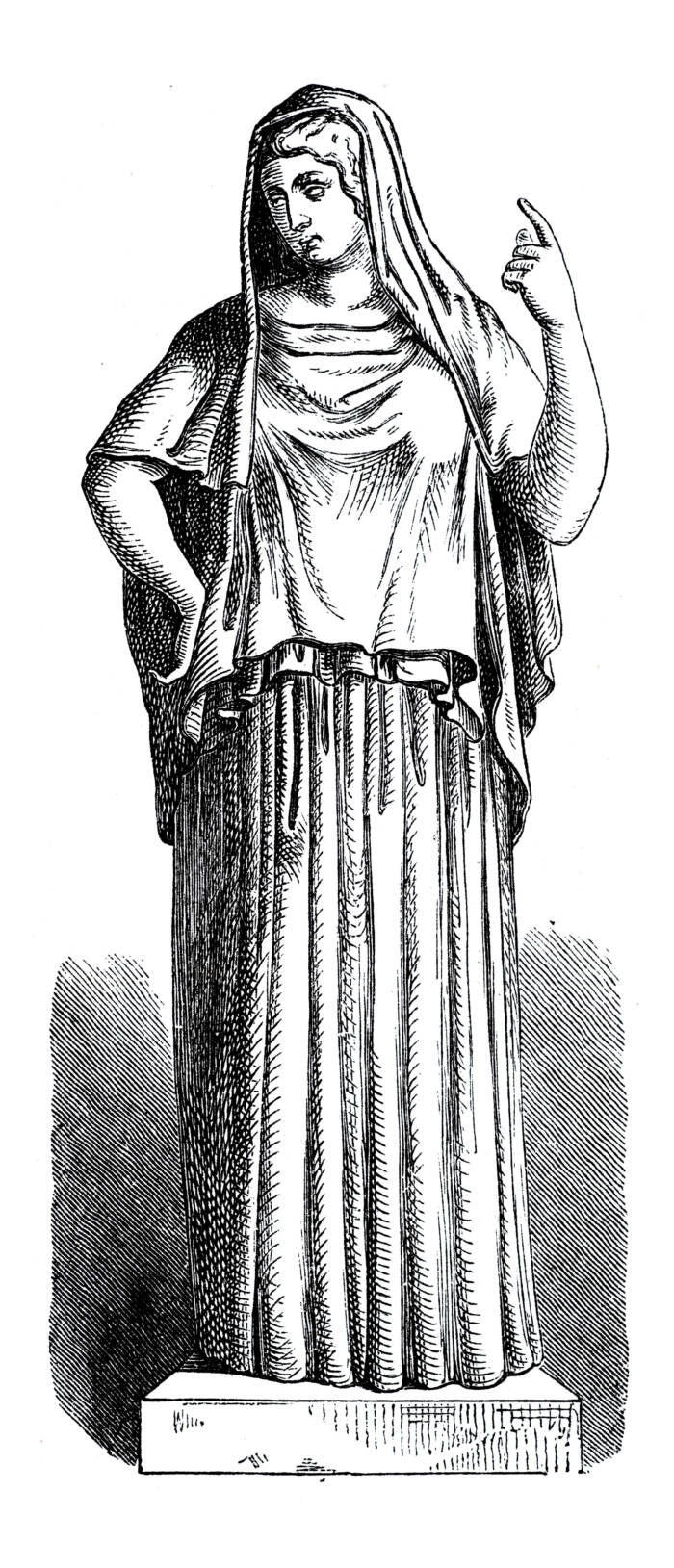The 12 Olympians: Hestia, The Goddess Of The Hearth

SandraC/Alamy Stock PhotoHestia, the Greek goddess of the hearth and the home, known as Vesta to the Romans.
Hestia, the goddess of the hearth, home, and domestic life, was the eldest daughter of Cronus and Rhea. She was also the first of the 12 Olympians to be swallowed by her father and the last to be disgorged, making her both the oldest and the youngest among her siblings. Unlike her more, for lack of a better word, flamboyant Olympian counterparts, Hestia is known for her gentle, non-confrontational nature, embodying the warmth and sanctity of the home.
Choosing to remain a virgin, Hestia devoted herself to maintaining the hearth and fire of Olympus, ensuring that the sacred flame never went out. This role was critical, as the hearth was both the literal and symbolic center of the home, providing warmth and serving as a gathering place for family and community.
In a broader sense, Hestia’s fire also represented the communal and political heart of a city, with each city-state having a public hearth dedicated to her, where the fire was kept perpetually burning.

bilwissedition Ltd. & Co. KG/Alamy Stock PhotoWorship of Hestia was central to the way of life for many in ancient Greece.
Hestia’s presence was integral to daily life in ancient Greece. Every meal began and ended with an offering to her, a testament to her role as the protector of the sanctity and prosperity of the household. Her worship did not involve the grand temples or elaborate festivals that characterized the veneration of other Greek gods. Instead, it was deeply personal and domestic, conducted at the hearth of every home and the central hearths of cities.
Despite her significance, Hestia’s mythology is not filled with tales of adventures or conquests — her stories largely emphasize her virtues of stability, peace, and community.
In one of the few myths about her, Hestia was courted by fellow Greek gods Poseidon and Apollo, yet she petitioned Zeus to allow her to remain an eternal virgin, a request he, amazingly, granted. While Artemis and Athena were likewise virgin goddesses, Hestia was the only goddess to specifically petition Zeus to retain her virginity.
She was honored in more subtle ways than the other gods as well. In many city-states, the prytaneum housed a communal hearth in her honor, and new colonies would carry Hestia’s sacred flame from the mother city’s hearth to establish their own.
Many families also partook in the Amphidromia, a family festival where newborns were introduced to the household by being carried around the hearth, seeking Hestia’s blessing for the child’s future. During public feasts, the first and last libations were also often poured in Hestia’s honor.
After learning about the 12 ancient Greek gods of the Olympian pantheon, read about 11 of the most horrifying mythical creatures. Then, learn about six of the craziest and most terrifying mythological gods.





